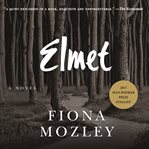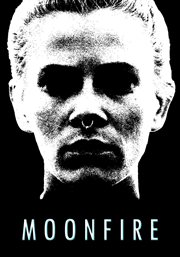Review by Booklist Review
*Starred Review* A young man, dirty, hungry, and determined, is searching for his sister on the moors of Yorkshire, once the ancient kingdom of Elmet, now a land poisoned and impoverished. The page turns; the seasons roll back; and readers learn the story of how Daniel, 14, Cathy, 15, and their father, John, a giant of epic strength, abandoned town life and built a simple home deep in the woods. Our world was about muscle, Daniel observes, and about the traditional skills needed to live off the land and off the grid. John hopes to keep his self-reliant children safe in this strange, sylvan otherworld. But this man of steadfast integrity and old-world morality, this bare-knuckle boxer and enforcer, has enemies, and the land is not theirs. Shortlisted for the 2017 Man Booker Prize, Mozley's preternaturally accomplished debut novel is a riveting and disquieting fable of a family reaching back to life's essentials and embracing nature's beauty, abundance, and challenges, yet remaining caught in the perpetual twist of human good and evil. In pristinely gorgeous and eviscerating prose, Mozley, who chimes with Hannah Tinti, Lydia Millet, and Daniel Woodrell, sets ablaze a suspenseful family tragedy stoked by social critique, escalated by men's violence against women, and darkly veined with elements of country noir.--Seaman, Donna Copyright 2018 Booklist
From Booklist, Copyright (c) American Library Association. Used with permission.
Review by Publisher's Weekly Review
Mozley's debut, shortlisted for the Man Booker prize, is a rugged, potent work whose concentrated mixture of lyricism and violence recalls Cormac McCarthy. A taciturn giant of a man, a bare-knuckle fighter who is the "fastest and toughest... in Britain and Ireland," builds a house for himself and his two children in the Yorkshire woods, where "the soil was alive with ruptured stories that cascaded and rotted then found form once more and pushed up through." In this secluded spot, he attempts to strengthen his two children, a slight, observant boy and an indomitable girl, "against the dark things of the world." Dark things soon intrude as the family becomes embroiled in a bitter dispute with a villainous local landowner and his two entitled sons. That conflict generates overheated scenes of gore and overlong speeches that dissipate the novel's power. There are nevertheless many eerily beautiful scenes, particularly one in which the grizzled father rigs up rustic Christmas lights deep in an ancient copse. Mozley is best when describing the tight-knit family in its isolated splendor, creating, and then clinging to, their "strange, sylvan otherworld." (Dec.) © Copyright PWxyz, LLC. All rights reserved.
Review by Library Journal Review
Listeners are advised to be patient with this story. It takes time to figure out the names of some primary characters and whom the narrator is seeking in the "current" chapters of the book. Much of the novel is background for the events that lead to the "current" pursuit. This background has exquisite descriptions of the modern remains of -Elmet, an ancient kingdom in West Yorkshire, England, where Daniel and Cathy live with their father, John. John has built a cottage on land previously owned by the children's mother but is often away prizefighting. They live off the land by poaching game and growing a small garden. Mr. Price, the real landowner, wants the family to leave, or to employ John as an enforcer to bring his other tenants into line. Mr. Price organizes a large prizefight that John must win to protect his land for the children. Continued family existence leads to desperation and violence. Narrator Joe Jameson's characterizations are excellent, and his accent perfect for the setting. -VERDICT This novel is highly recommended for adult audio collections.-Cliff Glaviano, -formerly with Bowling Green State Univ. Libs., OH © Copyright 2018. Library Journals LLC, a wholly owned subsidiary of Media Source, Inc. No redistribution permitted.
(c) Copyright Library Journals LLC, a wholly owned subsidiary of Media Source, Inc. No redistribution permitted.
Review by Kirkus Book Review
A not-always-gentle giant and his two children live peacefully in the woods, but the push and pull of old forces will eventually find them, and the results will be explosive.Part fairy tale, part coming-of-age story, part revenge tragedy with literary connections, Mozley's first novel is a shape-shifting, lyrical, but dark parable of life off the grid in modern Britain. Its narrator is 13-year-old Daniel, the tall, sensitive son of John Smythe, a man mountain who makes his living as a bare-knuckle fighter. Daniel, his lovely, fearless older sister, Cathy, and their father live in a house John built in a copse, on land that once belonged to the children's mother. They are self-sufficient, fed by game they hunt, seated on furniture they built. It's an idyllic if elemental life, lived largely outside society, until landowner Price, who once employed John as a debt collector, arrives to apply some pressure. Soon John is helping lead an insurrection of underpaid farm laborers and oppressed tenants against Price's clique of farmers and power brokers. The deal that will resolve this confrontation requires John to fight a brutal match, but the violence doesn't end there. Mozley's title refers to a Ted Hughes poetry sequence and a West Yorkshire setting with deep historical roots. Her ruined Eden of a landscape is evoked with beauty and empathy: "The soil was alive with ruptured stories that cascaded and rotted then found form once more and pushed up through the undergrowth and back into our lives." Ecological messages, class and gender conflict, and England's long history of struggleall are mingled with Daniel's sexual awakening and a surreal, or superhuman, or quasi-spiritual, gothic and gory final reckoning.Mozley's instantaneous successthis debut landed straight on the 2017 Man Booker Prize shortlistis a response to the stylish intensity of her work, which boldly winds multiple genres into a rich spinning top of a tale. Copyright Kirkus Reviews, used with permission.
Copyright (c) Kirkus Reviews, used with permission.


